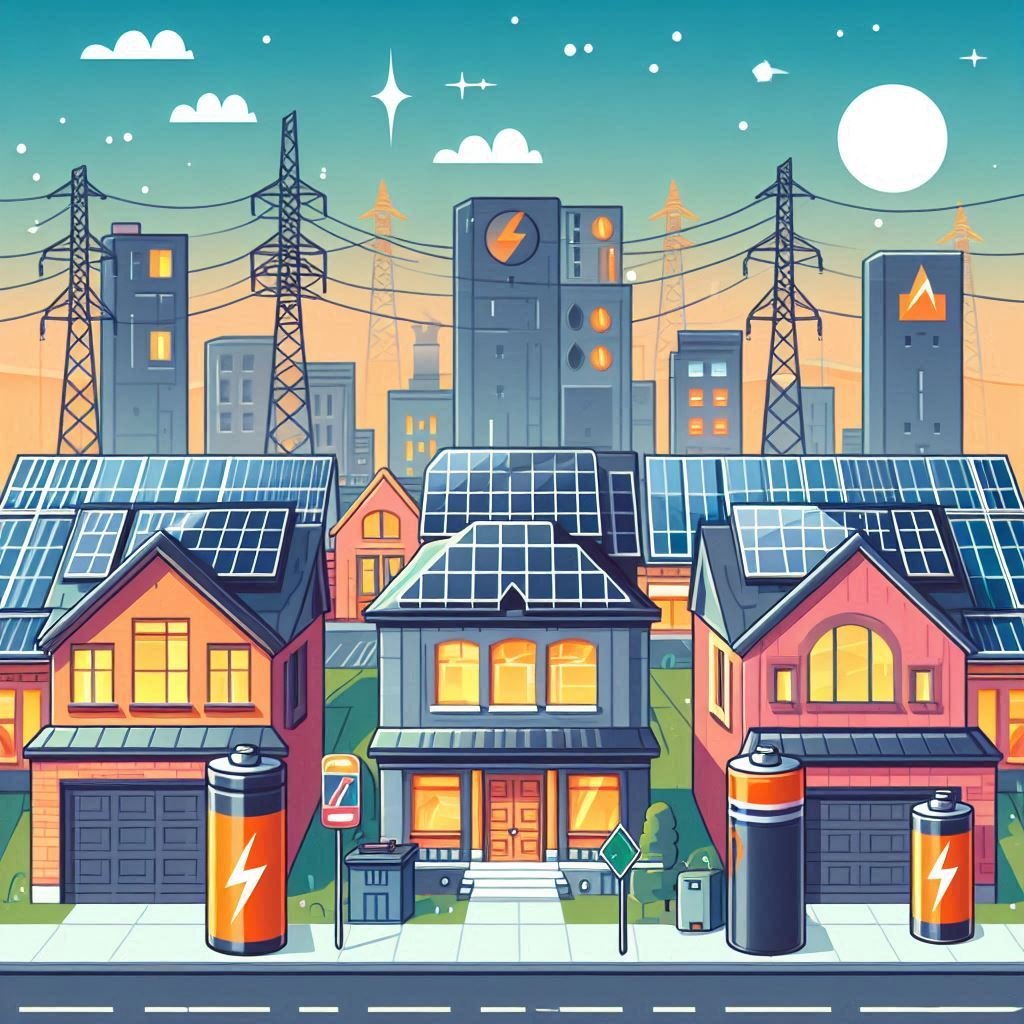Trade to save
Clustered energy hub networks for lower energy costs - by Cara Koepele
Did you know that new algorithms can reduce your gas and electric bills? A household’s energy costs can be reduced if its devices - such as solar panels and heat pumps - are controlled in a smart way and coordinate with one another. This is the idea of an energy hub: a collection of linked electricity, gas, and heating devices that work together.
If there is a network of energy hubs, energy costs can be reduced further if they can trade resources. Optimal operation and trading amounts for such a network can be determined by solving a single large optimization problem. However, this method runs into computational scalability issues as the network size increases, and there is a lack of privacy for individual hubs. Using such a centralized approach brings another challenge: it needs to be updated every time an energy hub joins or leaves the network.
To overcome these challenges, we are looking into ways to separate the optimization problem by grouping the energy hubs into clusters such that they are agnostic to activity within neighboring clusters. This distributed formulation can scale better and reduce the number of changes that need to be handled for entering or exiting energy hubs. By enabling optimization over larger and larger energy hub networks, we aim to achieve lower energy bills for everyone.
Text by Cara Koepele; image created with Microsoft Designer






Preventing blackouts in the age of renewables - by Emma Laub